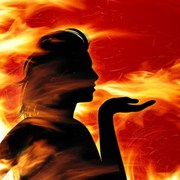 Hemera/Thinkstock
Hemera/Thinkstock
Going through menopause is no picnic. It may last for up to 10 years and cause a myriad of symptoms including weight gain, hot flashes, night sweats and insomnia. In short, for women between 40 and 60, life can be miserable.
But, scientists may have discovered some good news for menopausal women. Kaiser Permanente Division of Research recently published a study in “Menopause: The Journal of the North American Menopause Society”.
Researchers assigned 40 percent of the 17,473 menopausal women in the study who were not on hormone therapy to a low-fat diet with a high intake of fruits, vegetables and whole grains. The other candidates were to maintain their regular diet plan.
All participants were asked to record how often they experienced hot flashes and night sweats, and detail the severity of these symptoms.
The women on the low-fat diet were three times more likely to lose weight than other women who ate their usual foods. But, researchers also discovered that women in the diet group, who lost at least 10 pounds, found some relief from hot flashes and night sweats.
"While the mechanism is not completely understood, hot flashes and night sweats are thought to be caused by a complex interaction that involves fluctuating hormone levels, the hypothalamus region of the brain that regulates body temperature, brain chemicals and receptors, and the body's blood vessels and sweat glands," said Candyce Kroenke, ScD, MPH, a research scientist with the Kaiser Permanente Northern California Division of Research and lead author of the study.
Kroenke also said that the dietary study is one of the first and the largest to analyze whether women who lost weight on a low-fat diet and eat more whole grains, fruit and vegetables could improve hot flashes.
Bette Caan, DrPH, a research scientist with the Kaiser Permanente Northern California Division of Research and the senior author of the study said, "Since most women tend to gain weight with age, weight loss or weight gain prevention may offer a viable strategy to help eliminate hot flashes and night sweats associated with menopause."
A related study published in the Journal of Clinical Oncology by Kaiser Permanente researchers found that preventing weight gain after a woman is diagnosed with breast cancer might also reduce hot flashes.
Further research is needed to better understand the connection between diet, weight loss and hot flash/night sweat symptoms, but following a lot-fat diet during menopause might just be the answer to avoid 10 years of misery.
Sources:
Low-Fat Diet May Ease Hot Flashes. Well Blogs NY Times. Web. 17, July, 2012
http://well.blogs.nytimes.com/2012/07/16/low-fat-diet-may-ease-hot-flashes/?ref=research
Weight Loss Resulting from a Low-Fat Diet May Help Eliminate Menopausal Symptoms. ScienceDaily. Web. 17, July, 2012
http://www.sciencedaily.com/releases/2012/07/120711101030.htm
Reviewed on July 18. 2012
by Maryann Gromisch, RN
Edited by Jody Smith






Add a Comment1 Comments
Though it is known that unhealthy fats are how to gain weight unlinke unsaturated fats in nuts, so if you start feeling your weight is increasing you should stick to the low fat diet, and pick your food more wisely.
November 5, 2012 - 10:22amThis Comment